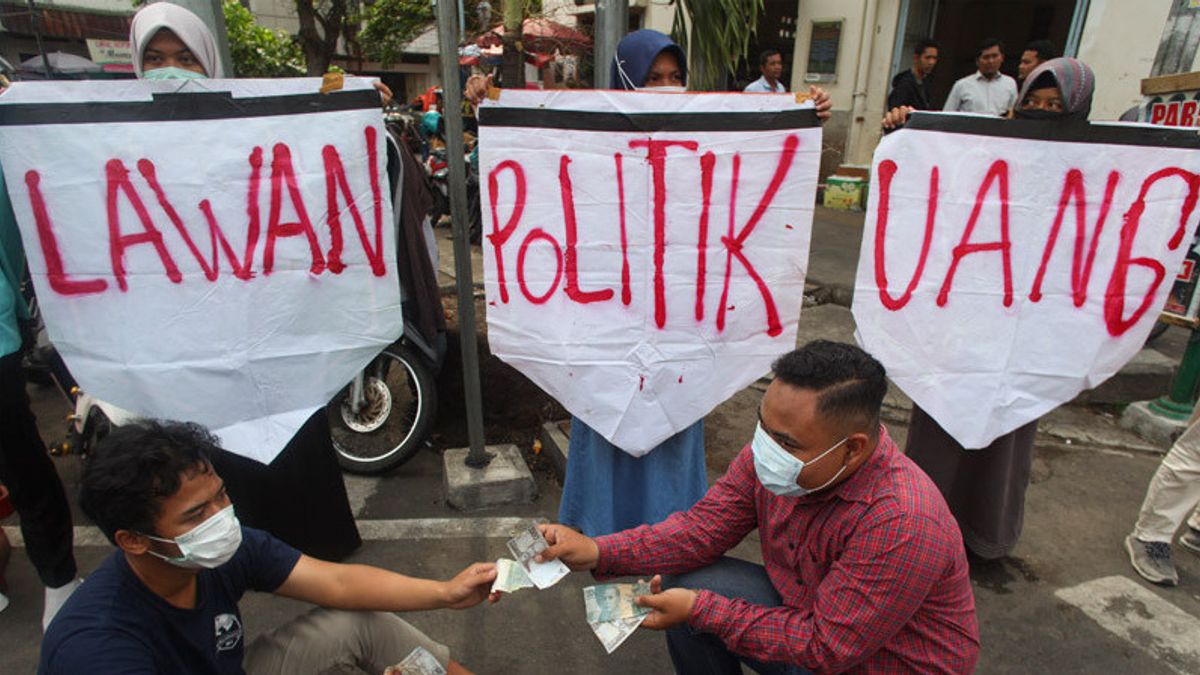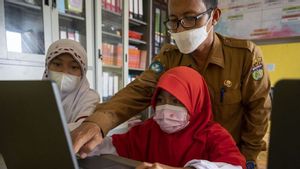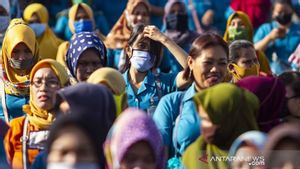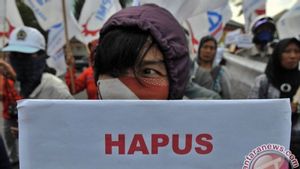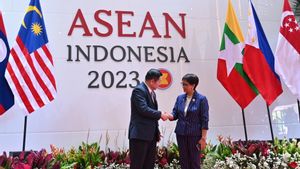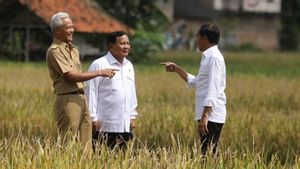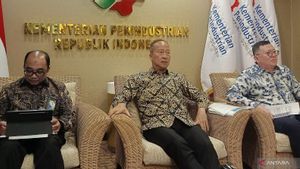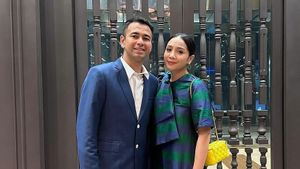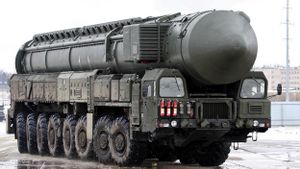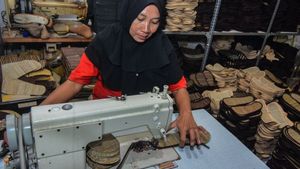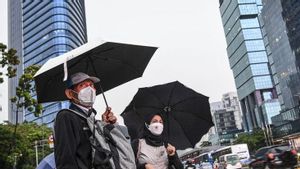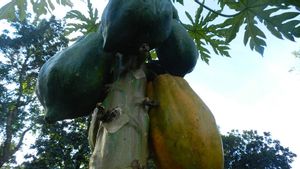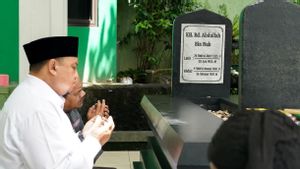JAKARTA Money politics in every election is a practice that destroys democracy and is often considered to be the cause of corrupt behavior. Unfortunately, although it is often a public conversation, these practices are increasingly rampant. In fact, the public and a number of politicians have considered it commonplace.
The public, said Asep Nurjaman, has treated the elections as well as the market. They only want to choose a profitable political party. Any party that enters will be accepted as long as it can contribute.
From the results of Asep's observations written in his book 'Parties and Elections: Political Behavior in the Local After The New Order', the public considers whoever is chosen, there is no significant influence on their lives.
"There are elections or no elections, my fate remains unchanged. If so, it's better if what can be obtained now, in the future we don't know, at least those we support forget," Asep wrote referring to the results of his observations.
The form of bribery support varies, it can be through the construction of public facilities or cash. In fact, said Chairman of the Advisory Council of the United Development Party (PPP) Muhammad Romahurmuziy, there were up to IDR 1 million per person, as happened in Tanah Tidung Regency, North Kalimantan.
"Moneypolitic is one envelope of 1 million. I asked the regent's officials there at that time. Because the population was only 22 thousand, the voters were only 16 thousand. That means it could be 16 billion. All survey institutions know that," said Gus Romi, Romahurmuziy's nickname on the Political Total YouTube account on May 2, 2023.
It is the same with politicians or people who want to be election contestants. There are still dowrys that must be spent to get support from political parties. The forms also vary, including money.
For example in DKI Jakarta. Basuki Tjahaja Purnama (Ahok) in 2016 had revealed that the political costs to run as Governor of DKI Jakarta could reach Rp100-200 billion per party.
The dowry was then used by the party to move its branches. For example, for one kelurahan, it takes an injection of funds of around Rp. 10 million per month. If there are 267 urban villages and are calculated in 10 months, the funds needed are billions. Not to mention if the party is in coalition.
Another evidence can also be seen from the statement made by the Deputy Chairperson of the Golkar Party, Erwin Aksa in February regarding Anies Baswedan's debts to Sandiaga Uno amounting to Rp50 billion for campaign funds in the 2017 DKI Pilgub.
Even according to Romi, the actual number is bigger.
This means that the political costs to be a contestant for elections in Indonesia are very high and not commensurate with their normative income. No wonder the practice of corruption in Indonesia is getting more massive because the system only relies on money politics.
Romi believes 99 percent of elected officials commit corruption, 'About being caught is just a matter of fate because everyone does it.'
Even though the dowry is financed by investors, in its implementation there is still nothing free. The practice of money politics will undermine the independence and integrity of officials. The existence of capital support, making, elected officials will later submit to the interests of investors.
The government has actually issued various regulations to prevent money politics. Among other things, through Law No. 7 of 2017,
Article 515 states, Everyone who deliberately at the time of voting promises or gives money or other materials to Voters so that they do not exercise their right to vote or choose a certain election participant or exercise their right to vote in a certain way so that their ballot is invalid, shall be punished with imprisonment for a maximum of 3 (three) years and a maximum fine of Rp36,000,000.00 ( thirty-six million rupiah).
Then in Law No. 1 of 2015 concerning Stipulation of Government Regulations in Lieu of Law No. 1 of 2014 concerning the Election of Governors, Regents, Mayors. Article 47 reads, Political parties or coalitions of political parties are prohibited from accepting in any form in the process of nominating governors, regents, and mayors.
As well as Law no. 7 of 2017 concerning General Elections, in Article 228 to be precise. "Political parties are prohibited from accepting in any form in the process of nominating the President and Vice President."
In the same article, it is also stated that there is a prohibition for people or institutions to reward political parties in the process of nominating their presidents and deputies. The rules regarding political dowries contain strict sanctions, namely a prohibition for political parties to nominate candidates for the next period.
However, according to Amir Arief, the Director of Socialization and Anti-Corruption Campaign of the KPK, the proof is difficult because it is done with limited and secret. In addition, to prove the political dowry there must be an acknowledgment from the giver.
"The existence of criminal sanctions for givers and recipients of political dowries makes this recognition difficult to realize," he said as quoted from the Anti-Corruption Education Center website.
The public also generally prefers to remain silent when they know about the practice of money politics. This can be seen from the results of a survey conducted by Kompas on 506 respondents from 34 provinces on January 18-20.
Most of the respondents admitted that they had experience or knew about the practice of money politics, but the majority remained silent and did not report it to the authorities.
Only 12 percent of respondents expressed their willingness to report it. In his report, Litbang Kompas wrote such conditions reflecting how the practice of money politics will still be a worrying problem for the implementation of elections and the quality of democracy in this country.
Without the public being moved to be able to care about fighting all forms of money politics, it is highly unlikely that acts of fraud that injure the purity of people's voices can be resolved.
また読む:
The English, Chinese, Japanese, Arabic, and French versions are automatically generated by the AI. So there may still be inaccuracies in translating, please always see Indonesian as our main language. (system supported by DigitalSiber.id)
